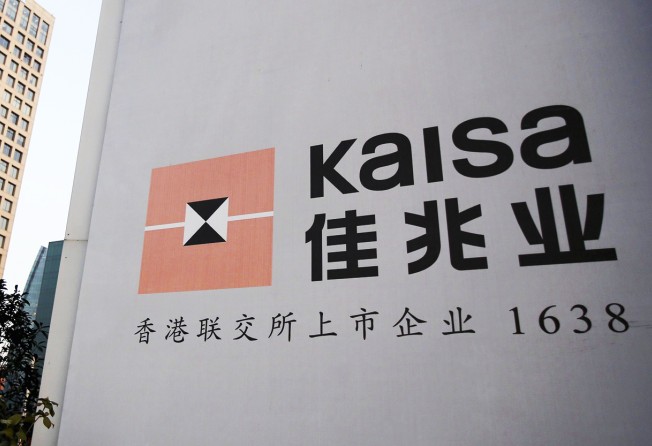Debt defaults cannot be ruled out in Chinese property sector, S&P warns

Debt defaults cannot be ruled out in the Chinese property industry as some developers face a further slide in earnings this year, a ratings agency says.
The annual results for 2014 indicate that many developers are in significantly worse shape than in the previous year, Standard & Poor’s said in a report released on Friday.
Although most of these companies met their sales targets, their profitability generally took a substantial hit.
“The slack operating performance in recent months has weakened the credit profiles of many Chinese developers,” S&P credit analyst Christopher Yip said.
“Continuing slower sales growth and swelling leverage could lead to further negative rating actions over the next 12 months.”
Kaisa Group Holdings is in the spotlight as investors wait to see if the Guangdong-based developer will meet an extended deadline this weekend for payment of interest on its 2017 and 2018 notes.
Kaisa failed to pay the US$52 million interest that was due on March 18 and 19 on the debt. It was given a one-month grace period to pay.
The developer had US$2.5 billion in offshore debt and US$7.6 billion in domestic debt at the end of last year. Failure to make the payment would see Kaisa become China’s third debt defaulter after Shanghai Chaori Solar Energy Science & Technology and internet firm Cloud Live Technology Group.
For the industry as a whole, S&P expects poor sales execution to weigh on the liquidity of Chinese developers over the next 12 months.
“Liquidity remains a key risk for Chinese developers, and has worsened for a number of already weak companies. Lower cash balances paired with increased short-term maturities have heightened refinancing risks, particularly for developers carrying high-cost alternative financing,” Yip said.
“The Chinese government and the central bank’s recent measures aimed at boosting market sentiment should help release pent-up demand.
“However, the positive impact will likely take time to materialise; more likely toward the second half of 2015,” he said.
As part of the shake-up in the market amid the downturn, large developers are expected to increase their dominance of the market.
Ouyang Jie, vice-president of Chinese-listed developer Jiangsu Future Land, was quoted by media as saying that he predicted 90 per cent of property developers in mainland China would be forced out of the market by 2026.
Seven Chinese developers are able to reap annual property sales of 100 billion yuan or above. They are China Vanke, Greenland Group, Dalian Wanda, Evergrande Real Estate, Poly Real Estate, Country Garden Holdings and China Overseas Land & Investment.
Ouyang said these companies accounted for a one-seventh share of the market and were growing rapidly.